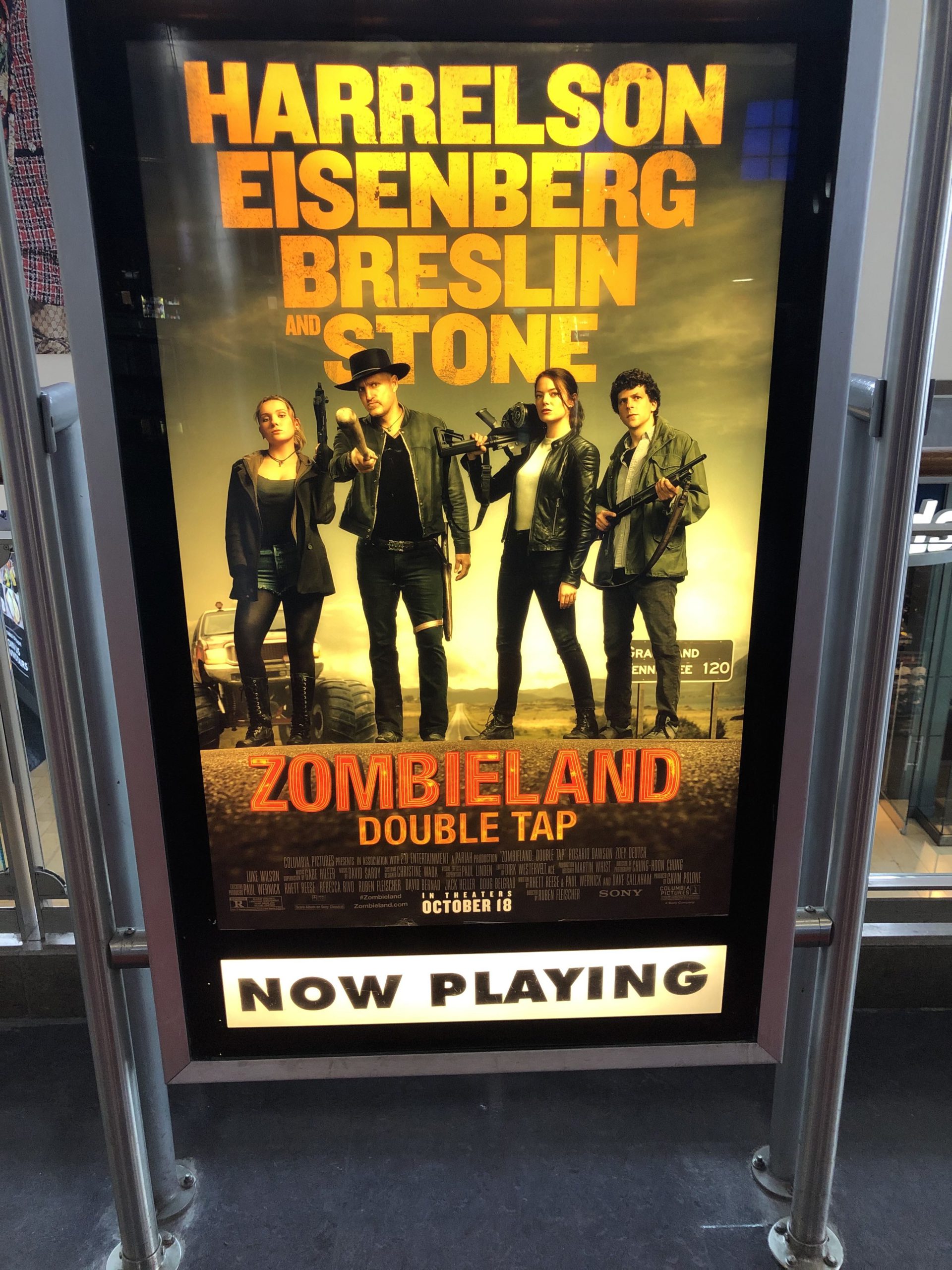Bryden Doyle | Contributor
Featured Image: The poster for Zombieland: Double Tap, pictured at Cineplex Cinemas Yorkdale. | Bryden Doyle
Ruben Fleischer’s 2009 horror-comedy Zombieland ran only a scant 88 minutes with credits, but it got the most mileage it could out of its premise with its mildly amusing mix of wisecracks, bloodshed, and a cast that was charming enough to overcome thin characterization. Ten years later, Zombieland: Double Tap is proof that there was no need to return to this—well, a second time.
In the decade since the last film’s events, the heroes have managed to survive the zombie apocalypse by sticking together as a makeshift family, but now they’re getting a little sick of one another. Nebbish Columbus (Jesse Eisenberg) is in love with the steely Wichita (Emma Stone), but she feels like he’s moving too fast for her. Blowhard Tallahassee (Woody Harrelson) has assumed the role of a father figure to Wichita’s sister, Little Rock (Abigail Breslin), but now that she’s a teenager, she wants to interact with people her own age. When Little Rock absconds with the pot-smoking pacifist Berkeley (Avan Jogia), her family hits the road to track her down.
Double Tap constantly feels like a lesser retread of the first film. Like the original, this new film’s opening credits sequence is another slow-motion gore-fest scored to Metallica, only this time it’s “Master of Puppets,” not “For Whom the Bell Tolls.” Fleischer recycles the running gag of Columbus’s survival rules appearing in giant text blocks as comedic punctuation, like when a dead character’s luggage is thrown out of a vehicle and the text reads: Travel light.
Even the tacked-on, saccharine moral repeats the first film’s message, which is that home is where your family is. The film’s glib humour, though, undermines its alleged emotional investment in these characters.
Much would be forgiven if Double Tap was actually funny, but much of its humour traffics in stereotypes that range from lazy to questionable. Zoey Deutch has a supporting role as Madison, a ditzy blonde who functions as a millennial punching bag, speaking in a chirpy and nasally voice and spouting phrases such as, “soi random” and “like.” Deutch gamely commits to the character, but the film’s treatment of Madison is so regularly demeaning that the effort feels wasted. There is also a number of abysmal stock music cues, including when Berkeley appears on screen accompanied by a sitar riff, which reads as offensive considering Jogia is part Indian.
Cinematographer Chung Chung-hoon occasionally spices things up with some nifty camera moves, most notably during an action sequence that’s shot as if it’s only one take. Though one can easily see where the cuts have been hidden, it’s the film’s most visually appealing attempt at making the repeated head-bashing less monotonous.
Eisenberg finds some amusing vestiges of prickliness in his line readings, while Harrelson has some fun moments where he exudes menace with non-verbal gestures, like tightening his jaw and narrowing his eyes to give his best death glare. However, the film is a step down for the four leads, all of whom are Oscar nominees (plus one winner) who deserve better.


